Remedial Teaching Meaning
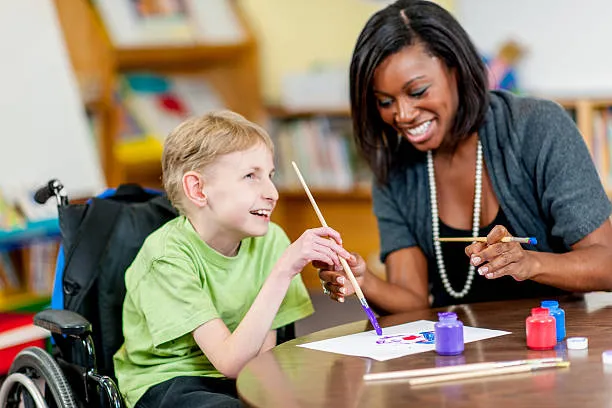
Source: istockphoto
Remedial Teaching Meaning
Remedial Teaching Meaning is to support students who have difficulty learning by assisting them in overcoming challenges and realizing their full potential. With customized strategies and procedures that are different from those used in traditional education, it focuses on addressing the unique requirements and difficulties that these learners are facing. The goal of remedial education is to provide students a more Individualised learning experience so they may develop a solid knowledge and skill base at their own speed.
In remedial education, the ability to adapt and meet the unique needs of each student is key.. Teachers may support students in becoming competent and confident in their skills by identifying areas where they need extra support and using appropriate strategies. In order for all students to succeed, remedial instruction must also focus on fostering a stimulating, encouraging, and welcoming atmosphere.
Table of Content
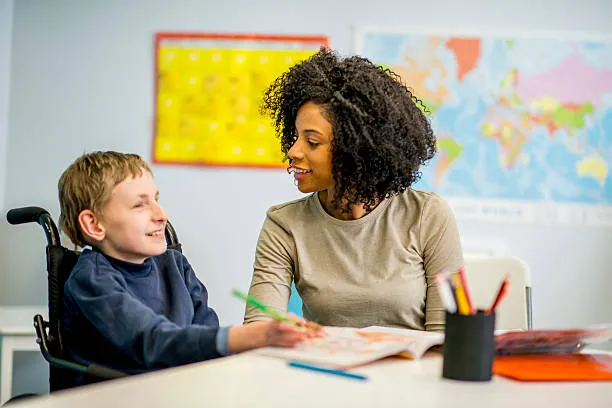
Source: media
Aims and Objectives of Remedial Teaching
The aims and objectives of Remedial Teaching are to support learners who face challenges in the standard educational model, remedial teaching plays a crucial role in the holistic development of students. It strives to bridge the gap between a student’s current academic performance and the expected ability level, engaging into a variety of teaching techniques designed for individual needs. Below are five key objectives of remedial teaching:
Address Learning Gaps:
One of the pivotal aims of remedial teaching is to address learning gaps a student might have in specific subjects. Every student has a unique learning pace and style; however, in a traditional classroom setup, it’s challenging to cater to individual needs. Consequently, some students may lag in understanding certain concepts.
Remedial teaching provides a tailored approach to learning, focusing on areas for improvisation and utilizing effective teaching strategies to ensure that students understand these concepts thoroughly. It’s like building a bridge over the gaps in a student’s comprehension, ensuring a smooth and continuous learning journey.
Boost Confidence:
Often, students struggling with certain subjects suffer from reduced self-confidence, which can affect their academic performance. Remedial teaching aims to boost confidence among students. In the safe and supportive environment of remedial classes, students can freely ask questions, seek clarifications, and learn at their own pace.
As they start to grasp the concepts they once found difficult, they regain confidence in their learning abilities. This confidence often reflects not only in their improved academic performance but also in their overall demeanor and approach toward learning and life.
Foster Learning Skills:
Remedial teaching is not merely about making students learn particular subjects; it also aims to foster learning skills and strategies. These abilities might include everything from taking notes, managing your time, and creating reasonable academic goals to employing various learning techniques like mind maps or mnemonic devices. These abilities can greatly enhance a student’s capacity to acquire and remember knowledge. Therefore, remedial instruction gives pupils a toolbox of learning techniques they may employ throughout their academic careers and beyond.
Promote Holistic Development:
Remedial teaching promotes holistic development in students by focusing on various aspects:
Emotional intelligence:
Remedial instruction emphasizes the development of emotional intelligence. Students learn to understand and manage their emotions, which helps them handle academic stress and challenges more effectively.
Social skills:
Remedial teaching encourages students to participate in extracurricular activities, enhancing their social interaction abilities. Engaging in diverse activities fosters teamwork, communication, and cooperation.
Love for learning:
The goal of remedial instruction is to instill a love for learning in students. By creating an engaging and supportive learning environment, students develop a positive perspective on education, leading to a lifelong passion for learning.
Remedial teaching equips them with essential life skills, prepares them for social interactions, and fosters a positive attitude towards education.
Prepare for Future Learning:
In order to establish a strong foundation for learning among children, remedial instruction seeks to prepare for future learning. Remedial instruction focuses on ensuring children understand the basic concepts and skills they need for more advanced learning later on. By mastering the fundamentals, students become better equipped to handle complex ideas in subjects like math or science. Students who have received remedial instruction are frequently better equipped to handle complex ideas because they have mastered both the “what” and the “how” of learning.
Encourage Independent Learning:
Remedial teaching seeks to encourage independent learning. It strives to provide students the knowledge and abilities they need to be in control of their learning. Students may recognise their skills and limitations and take proactive steps to improve by using strategies like self-evaluation and self-monitoring. Remedial teaching helps students become active participants in their education rather than passive recipients by promoting self-sufficiency and motivating them to take ownership of their learning.
Improve drive:
Students who struggle academically frequently experience a lack of drive. Remedial teaching addresses this and improve drive by making learning more engaging and relevant. It includes instructional strategies that increases students’ attention and curiosities, such as project-based learning, engaging exercises, or practical applications of theoretical ideas. Students become more motivated to study as they begin to enjoy the learning process, which improves academic achievement and fosters a passion to learn for the rest of their lives.
Promote Personalised Learning:
There is no such thing as a one-size-fits-all strategy in education. Recognising this, remedial teaching aims to promote personalised learning. Remedial teachers are able to create a learning plan that is Individualised for each student by evaluating each student’s distinct learning style, skills, areas of improvisation, and interests. The learning process may be greatly improved by this Individualised attention, making it more efficient and pleasurable for the learner.
Create a Positive Learning Environment:
Remedial teaching aims to create a positive learning environment. This entails developing an environment in which students feel at ease asking questions, making errors, and asking for assistance. Students are more willing to take chances and push themselves outside of their comfort zones in such a setting, which is essential for learning and personal development. Remedial education assists students in overcoming their fear of failure and inspires them to approach learning with an open and inquiring mind by creating a positive learning environment.
Their success in higher education and in their future employment depends on this preparedness. It’s like providing them with a compass to navigate the vast ocean of knowledge they will encounter in their ongoing educational journey.
Call here at 9321024137 / 9869866277 for a better understanding of the course.
For Downloading the brochure click here
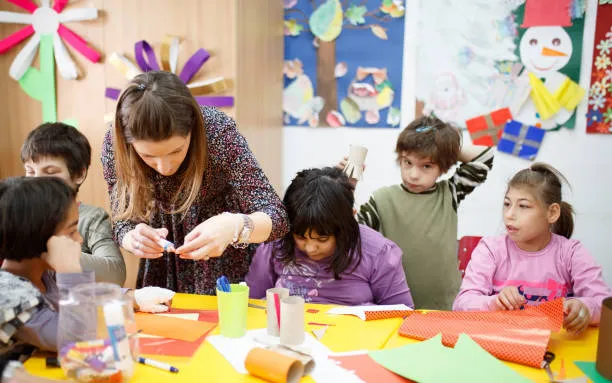
Source: media
Concept of Remedial Teaching
Concept of Remedial teaching is a specialized instructional approach designed for students who face learning challenges, helping them grasp concepts they find challenging.
- This teaching style is tailored to individual learning needs, pacing, and styles, enabling a more personalized educational experience.
- The core concept of remedial teaching lies in its inclusive nature, ensuring no learner is left behind due to learning difficulties.
- It aims to identify learning gaps and address them effectively while reinforcing areas where the student already excels.
- The ultimate purpose of remedial instruction is to empower students in their academic journey and to promote a love of learning, as well as to help them catch up with their classmates.
- Remedial instruction promotes student ownership of their academic development by fostering a feeling of accountability and drive for learning.
- The right remedial teaching approach can help students overcome their learning difficulties, enabling them to flourish academically.
Process of Remedial Teaching
Here’s a guide to the process of remedial teaching, simplified into key steps:
Identifying the Need:
The first step in remedial teaching involves identifying the need of students who require extra assistance. To evaluate the student’s comprehension and knowledge base, this procedure could use a variety of formal and informal assessments.
Understanding the Student’s Learning Style:
Every student has a different learning style, and the remedial teaching process can be more effective in understanding the student’s learning style. This might involve observation, discussion, or specific learning style assessments.
Diagnosing the Learning Difficulty:
Diagnosing the Learning Difficulty involves a detailed examination of the student’s academic struggles. It might include a thorough review of academic records, psychological tests, or one-on-one discussions to pinpoint specific areas of difficulty.
Developing a Customized Learning Plan:
Based on the diagnosis, a personalized learning plan is created. Developing a customized learning plan takes into account the student’s learning preferences, as well as his or her advantages and disadvantages and the particular areas that need work.
Implementing the strategy:
The last phase is implementing the strategy. This might be one-on-one tutoring, group projects, or certain techniques to improve the student’s comprehension and learning.
Frequent Assessment and Feedback:
Frequent Assessment and Feedback are necessary to gauge the effectiveness of the remedial teaching strategy and the student’s progress. Feedback should be constructive and should aim to motivate the student to improve further.
Modifying the Plan as Needed:
Modifying the plan as needed, depending on the assessment results. The goal is to ensure the teaching method continues to cater to the student’s evolving needs.
Constant Communication:
Constant communication with the student, parents, and other teachers is crucial. Sharing updates about the student’s progress can encourage a supportive environment conducive to learning.
Emphasizing on Reinforcement:
Remedial teaching focuses on emphasizing on reinforcement that often involves a lot of repetition and reinforcement to ensure concepts are fully understood and retained.
Promoting Independent Learning:
Promoting Independent Learning is the ultimate goal of remedial teaching and to make them students independent learners. Students should be encouraged to take ownership of their education throughout time, employing the techniques they’ve mastered to overcome obstacles.
Always keep in mind that educating children who need remedial aid takes patience, empathy, and a sincere desire to see them succeed academically. We at Vidhyanidhi Education Society (VES) provide courses like “Special Education Course,” “Learning Disability Course,” and “Shadow Teacher Training Course” that thoroughly cover the remedial teaching process and provide teachers the abilities they need to make a difference.
Nestled in Mumbai, Vidhyanidhi Education Society (VES) is an eminent institution registered under the Societies’ Registration Act, 1860 and Public Trust Act, 1950, dedicated to the training of educators. Our curriculum features a variety of Teachers’ Training Courses and a Phonics Teachers’ Training Certificate Programme.
- We have a tradition of excellence in preschool education and teacher preparation dating back over 20 years.
- We have helped hundreds of teaching professionals improve their abilities.
- Our alumni can be found in respected schools and educational institutes in various corners of the world, with many making strides as entrepreneurs in the childcare industry.
VES’s portfolio brims with a wealth of Special Education courses.
For enrolment details call VES at 9321024137 / 9869866277.
For Downloading the brochure click here
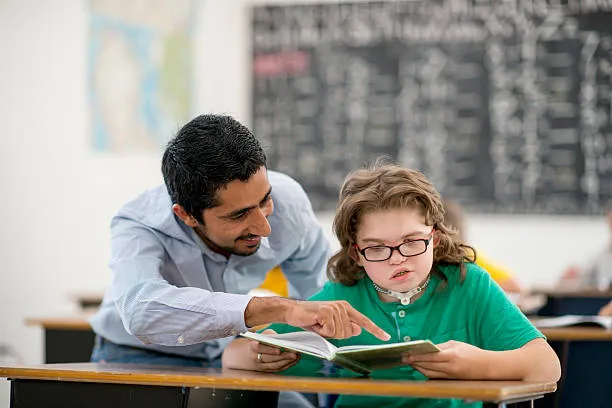
Source: media
Special Needs Education Courses
Special Needs Education Courses that define the academic versatility of Vidhyanidhi Education Society.
Scope Of Special Education
Scope of special education needs diploma programme is to provide prospective teachers the techniques, tools, and information necessary to empower and assist students with a range of learning difficulties. This thorough training equips professionals to design inclusive classrooms and use teaching methods that are tailored to the particular needs of kids with special needs.
Eligibility:
- Candidates must have completed their graduation (or equivalent) from a recognized board.
- Working with people who have special needs requires a lot of passion.
Duration:
- The curriculum is designed to be completed in a single academic year.
- Students have the option of pursuing full- or part-time studies.
Curriculum:
- Introduction to Special Education
- Understanding Disabilities and Learning Difficulties
- Assessment and Individualized Education Plans (IEPs)
- Teaching Strategies and Adaptations
- Assistive Technology and Augmentative and Alternative Communication (AAC)
- Behavior Management and Positive Reinforcement Techniques
- Collaboration with Parents, Teachers, and Other Professionals
- Inclusive Education Practices
- Legal and Ethical Issues in Special Education
Cost:
- The cost of the Diploma in Special Education Needs program can be obtained by contacting Vidhyanidhi Education Society directly.
VES Certificate Acceptance:
- The VES (Vidhyanidhi Education Society) certificate is widely recognized and accepted in the field of special education.
- Graduates with a VES credential may work in special schools, inclusive classrooms, and rehabilitation facilities, among other educational settings.
We at Vidhyanidhi Education Society are committed to giving our students the tools they need to positively touch the lives of people with special needs while also fostering a supportive learning environment. Enrol in our Special Education Needs Courses to start your career as a special education teacher.
For Course fees please call or Whatsapp on 9869546913 / 9869866277.
For Downloading the brochure click here
SLD Training
The Vidhyanidhi Education Society’s (VES) Diploma in SLD Training is a thorough programme designed to provide teachers the abilities and information they need to help students with learning impairments in inclusive learning environments. The objectives of this credential are to improve knowledge of learning difficulties, provide efficient teaching methods, and promote inclusive learning settings. Through this programme, educators will learn how to design an inclusive and empowering learning environment for all students while also gaining insightful knowledge on the different requirements of students with learning difficulties.
Eligibility:
- Graduation from an accredited institution in any field.
Duration:
- The diploma program is a one-year course.
- Both theoretical and practical elements are included.
- The curriculum incorporates practical instruction and knowledge application in the actual world.
Curriculum:
- Introduction to Learning Disabilities: Understanding the nature, traits, and many forms of learning disorders is covered in the introduction to learning disabilities.
- Assessment and Diagnosis: Techniques for recognising and diagnosing learning problems are used in assessment and diagnosis.
- Inclusive Education Practices: Strategies for creating inclusive learning environments and adapting curriculum.
- Individualized Education Plans (IEPs): Developing personalized plans to meet the unique needs of learners.
- Assistive Technologies: Exploring the use of assistive technologies to support learning.
- Behavioral Management: Techniques for managing behavior and promoting positive social skills.
- Collaboration and Communication: Building effective partnerships with parents, colleagues, and professionals.
Cost:
- The cost of the diploma program will be communicated by VES.
VES Certificate:
- The certificate awarded upon successful completion of the program is widely accepted and recognized.
- It demonstrates the specialized knowledge and skills acquired in the field of learning disability education.
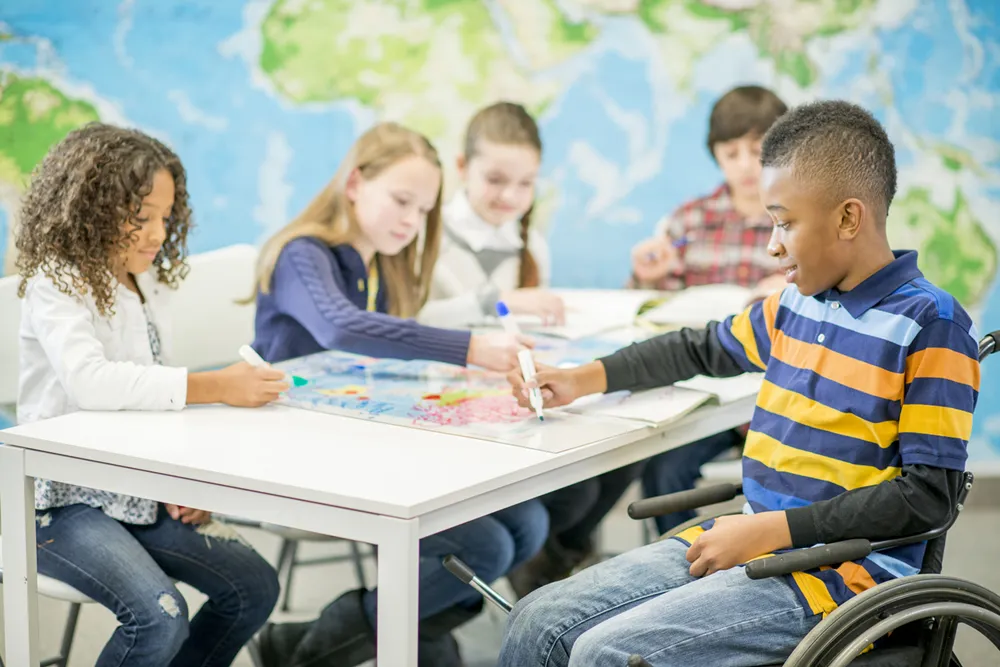
Source: encrypted
Shadow Teacher Qualifications
Shadow Teacher Training is a distinctive programme offered by the Vidhyanidhi Education Society (VES).This course has been carefully created to provide participants the abilities and information needed to support and help educate kids who may need extra support in regular classroom settings. Regardless of a student’s learning difficulties or special needs, shadow teachers are crucial in creating an inclusive atmosphere that fosters learning and development.
Eligibility
A large variety of people may take this course. Applicants must have a minimum educational qualification of 10th grade, making it suitable for anyone interested in the field of inclusive education or those who are aspiring to make a difference in a child’s educational journey with Shadow teacher qualifications.
Career Scope
Upon completion of the Shadow Teacher Training course, multiple career avenues are available. Graduates may work as a Shadow Teacher or an Inclusive Educator in mainstream schools, helping students with special needs to fully participate in regular classrooms. Additionally, they can offer private tutorial services, become an education consultant in inclusive education, or provide counseling and support to families of children with special needs. There is also potential for career progression into special education coordination or management roles in schools or other educational institutions.
Duration
The Shadow Teacher Training course spans six months. This duration is designed to provide a balanced mix of theoretical and practical training that can be effectively absorbed and implemented. The course’s flexible nature accommodates the busy schedules of individuals, making it ideal for both working professionals and full-time learners.
Curriculum
The curriculum is built to cover a broad spectrum of essential topics, from understanding the needs of students with special requirements, to implementing effective strategies for inclusive education. It includes areas such as child psychology, understanding various learning difficulties, creating individualized educational plans, managing classroom behaviour, and teaching methodologies tailored for special needs students. This curriculum ensures that trainees are fully equipped to handle various challenges they may encounter as a shadow teacher.
Cost
The course fee is kept affordable to make the Shadow Teacher Training accessible to a wide range of interested individuals. Specific pricing details are available upon request from the VES office or can be found on our official website.
VES Certificate Recognition
The certificate provided by Vidhyanidhi Education Society upon successful completion of the Shadow Teacher Training course holds high value and is widely accepted. VES, with its long-standing reputation in the field of education, ensures that its certification is recognized by educational institutions both nationally and internationally. Graduates from VES find a welcoming environment in the education sector, as our certification is associated with quality, dedication, and thorough preparation in the field of inclusive education.
Remedial Teaching Meaning
Are you ready to transform lives? Let’s start with Vidhyanidhi Education Society!
Call here at +9321024137 / +919869866277 for a better understanding of the course.
For Downloading the brochure click here




